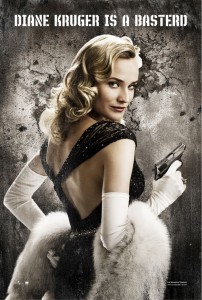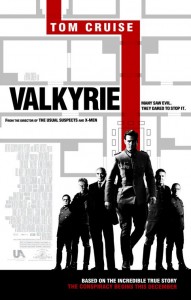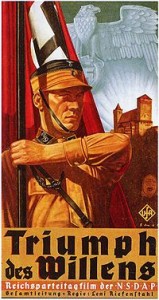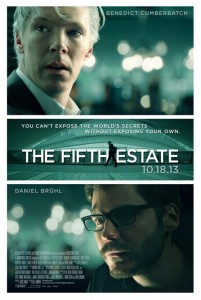Posts Tagged ‘Brad Pitt’
Sold Down the River
12 Years a Slave
Director: Steve McQueen
Starring: Chiwetel Ejiofor, Michael Fassbender, Paul Dano, Sarah Paulson, Lupita Nyong’o, Paul Giamatti, Benedict Cumberbatch, Brad Pitt, Quvenzhané Wallis, Michael Kenneth Williams
Based upon Solomon Northup’s groundbreaking novel, 12 Years a Slave published in 1853 http://en.wikipedia.org/wiki/12_Years_a_Slave, British director Steve McQueen brings the critically acclaimed film version to the big screen exposing the cruelty, violence and brutality of the slave trade in the Antebellum Deep South prior to the American Civil War. Audiences have to bear in mind that 12 years a Slave is set in 1841, the first half of the 19th century when America having broken away from Britain was expanding its nation commercially especially in the Southern States like Georgia, Louisiana and basically most South Eastern states below the Mason-Dixon line from Virginia downwards.
Nevertheless, director McQueen emphasizes the emotional and physical imprisonment of both slave and slave owner in a terrifying master servant relationship which is based entirely on commerce and the expansion of agricultural land in the vast cotton-picking states of the American South East where slave owners viewed slaves as their personal property to be bought, sold or exchanged for debts as part of payment for arable land. Despite the commercial exchange and vicious currency of slavery, this does not excuse the devastating effects it had on the African American people who become slaves often ripping families apart as well as being subjected to all sorts of human rights abuses which would be unimaginable in a 21st century America with Barack Obama as president.
Slavery is a tough subject to contextualize onscreen and British director McQueen takes the challenge head on and show through the extraordinarily horrific experience of Solomon Northup (superbly played by British actor Chiwetel Ejiofor) who as a free man in Saratoga, New York travels as part of a minstrel band to Washington DC where after a drunken night is drugged and sold into slavery and literally shipped down the Mississippi river to the slave port of New Orleans.
Northup first becomes the property of seemingly benevolent land owner Ford played by Benedict Cumberbatch (The Fifth Estate), but after an altercation with the vicious plantation manager Tibeats an excellent cameo by Paul Dano, is transferred as part of a debt owing to the even more sadistic plantation owner Epps brutally played by Michael Fassbender. On Epps’s cotton picking Louisiana plantation, Northup meets the vulnerable but tough Patsey (an excellent performance by screen newcomer and Kenyan actress Lupita Nyong’o) who becomes the forbidden object of desire by the psychotic, bored and lustful Epps.
It is really Nyong’o’s Patsey who endures rape, torture and a particularly cruel whipping scene which elevates 12 Years a Slave into a shocking and harrowing portrayal of the absolute horrific conditions of 19th century slavery in the deep South, conditions so horrendous that the Northern states eventually intervened in a bid to abolish slavery resulting in the bloody American Civil War from 1861 to 1865 – http://en.wikipedia.org/wiki/American_Civil_War.
McQueen’s film while at times lacking in narrative structure, is still an absorbing historical portrayal of humanity’s capacity to inflict cruelty and suffering on their fellow humans, a point which Brad Pitt’s character Bass emphasizes and who eventually assists Northup in his bid for emancipation. Shot in the suffocating heat of a Louisiana summer, 12 Years a Slave is atmospheric, brilliantly acted and deeply disturbing and a testament to man’s own ability to survive under vicious circumstances.
Whilst 12 Years a Slave won People’s Choice Award at the 2013 Toronto International Film Festival and has nine 2014 Oscar nominations, it is really the breakout performance of Lupita Nyong’o who shines amongst a British American cast including Alfre Woodard, Sarah Paulson, Paul Giamatti and Benedict Cumberbatch and Quvenzhané Wallis from Beasts of the Southern Wild as Northup’s daughter Margaret.
This is recommended viewing for lovers of historical films, but be warned 12 Years a Slave is cruel, violent and shocking, which is exactly McQueen’s intention in showing up Slavery as one of Mankind’s most atrocious historical eras, a completely ruthless and harrowing practice, offering a contemporary cinematic counterpoint to the 1939 classic Gone With the Wind.
2013 Toronto Film Festival
2013 Toronto International Film Festival Winners
Toronto International Film Festival (TIFF) takes place every year in September in Toronto, Canada.
Films which premiere at Toronto are often nominated for Academy Awards the following year.
TIFF does not hand out individual prizes for Best Actor or Actress but focuses on among others the following awards:
People’s Choice Award & Best Canadian Feature Film
Opening Night Film: The Fifth Estate directed by Bill Condon starring Benedict Cumberbatch, Daniel Bruhl, Dan Stevens, David Thewlis, Alicia Vikander, Laura Linney, Stanley Tucci and Carice van Houten
People’s Choice Award: 12 Years a Slave directed by Steve McQueen starring Chiwetel Ejiofor, Michael Fassbender, Brad Pitt, Paul Giamatti, Alfre Woodard, Benedict Cumberbatch, Paul Dano and Sarah Poulson
Best Canadian Feature Film: When Jews were Funny directed by Alan Zweig (documentary) starring Howie Mandel, Shelley Berman, Norm Crosby, Shecky Greene, Jack Carter, David Steinberg
Source: http://en.wikipedia.org/wiki/2013_Toronto_Film_Festival
2007 Venice Film Festival
2007 Venice International Film Festival Winners
Venice International Film Festival, known as the Biennale di Venezia takes place annually
in late August, early September and is the oldest Film Festival in the World.
Winners of the 2007 Venice International Film Festival are as follows: –
Golden Lion (Best Film): Lust, Caution directed by Ang Lee
Silver Lion (Best Director): Brian de Palma – Redacted
Best Actor: Brad Pitt – The Assassination of Jesse James by the Coward Robert Ford
Best Actress: Cate Blanchett – I’m Not There
Source: http://en.wikipedia.org/wiki/Venice_International_Film_Festival
By Way of Grace or Nature
The Tree of Life
Reclusive American film maker Terrence Malick’s visually evocative epic The Tree of Life centres on a Southern American family living in the then idyllic town of Waco, Texas in the late 1950’s and early 1960’s. A strict and religious father, a loving and luminous mother and three boys is intimately shot and interwoven with a larger meditation on the existence of God, the universe, Birth and Death and the arc from a more pastoral existence to the technology filled society which has defined the 21st century. The father is played brilliant by Brad Pitt and the mother by Jessica Chastain each representing the balance in nature between order, discipline and change with beauty, grace and tenderness.
Malick’s vision is of a true auteur and is entirely uncompromising, creating a cinematic experience in The Tree of Life which is visually astounding, intimately beautiful and prosaic enhanced with amazing cinematography by Emmanuel Lubezki. Using a non-linear narrative, multiple levels of sound combining breathtaking music with snatches of interior monologue from his characters, the audience has to piece together the progression of this journey of a family who suffers a loss by way of nature.
There are no structured scenes but rather a series of visually sublime and breathtaking scenery intercut with a larger vision of the universe’s origins, the development of life on earth and the natural order of selection. Where Malick excels are the scenes of the three brothers innocently playing, focusing on the eldest son, Jack’s viewpoint who is deeply affected by his father’s discipline, balancing his own aggression by acts of affection for his younger siblings. Jack also appears as an older man, played by Sean Penn as an architect in Houston, still affected by the earlier grief which defined his family.
The Tree of Life is not a commercial film and if viewers enjoyed Malick’s two previous films, The Thin Red Line and The New World, then they will appreciate this beautiful yet bewildering meditation on the origins of existence on earth, yet his latest visual offering did impress the jury at Cannes walking off with the 2011 much coveted Palm d’Or. See it to make your own impressions.
Revisionist Cinema from Hell
Inglourious Basterds

She is watching us… the Voyeur as Killer
A Revisionist look at World War 2 with all the German angst, French charm and American parody…
Sooner or later Tarantino was bound to approach the territory of the 2nd World War. While there has been a plethora of World War movies since the mid 1940s onwards, many have tackled the War from a purely Euro-American perspective focusing on the Nazi’s simply as the enemy. From Great battle films, like Saving Private Ryan to the more personal and heart-rendering stories of Sophie’s Choice and Schnindlers List and more recently Atonement.

The Rot started from within…
Valkyrie arrived, Tom Cruise’s fascinating yet doomed project about a plot to kill Hitler from within the highest rankest of the Nazi inner circle in 1944. Defiance followed, a superb story of Polish Jewish resistance set in the forests outside Krakow. There was entertainment rumblings from Tarantino that after the Kill Bill films, he was planning a revisionist and slightly parodying version of World War 2…
Cannes Film Festival 2009

Cannes Film Festival 2009 and Inglourious Basterds, Tarantino’s long awaited film featuring a band of Jewish American Nazi scalp-hunters who take revenge on the Nazi’s in German-occupied France in the early 1940s is premiered much to every cineaste’s delight. Basterds is far more than a revenge cult film against Nazi’s, it’s a statement about Cinema being used as propaganda. The references are rife, for as in Pulp Fiction, Tarantino’s best trait is revealed, a rambling but significant knack for quirky dialogue. Except in this film, authenticity dictates –so naturally the French spoke French, the Nazi’s spoke German and the Americans spoke a range of regional accents from Brooklyn to Tennessee slang. Tarantino assembles some fantastic European stars of contemporary cinema, from Til Schwieger to Diane Kruger and Melanie Laurent.
Cinema as Propaganda
Tarantino makes comparisons between Joseph Goebbels – Nazi Minister for Propoganda and the then founder of MGM, Louis B. Mayer, both as masters of cinema and naturally propaganda. More specific are the references to Leni Riefenstahl, who rose to fame in the 1930s as a significant German film-maker churning out the Nazi blueprint for propaganda – Triumph of the Will.

Truimph of the Will
Riefenstahl, was later vilified once the war was over and went onto to become a documentary filmmaker in East Africa. There are also a sprinkling of humorous discussions about the American black athlete Jesse Owens who sparkled at the 1936 Berlin Olympic Games much to Hitler’s dismay. Watch out for a spoof on the British military featuring a contemplative Winston Churchill and a wonderful cameo by Mike Myers whose line, “we will have all the rotten eggs in one basket” is delivered with affected panache.
A French Spaghetti Western Tarantino Style
Basterds opening shots are reminiscent of the early spaghetti Westerns of Sergio Leone – with a scene straight out of The Good, The Bad & The Ugly, except its not a dusty Mexican outback with outlaws escaping bounty hunters, it’s a pastoral scene of a French Farming countryside. This time there is no Sun-Burnt Clint Eastwood in a poncho. Enter Christoph Waltz, the urbane, elegant and lethal multi-lingual Nazi Jewish hunter. Waltz has some of the best dialogue in the film and effortlessly switches from German to French to English in order to ascertain his victims whereabouts. Yet Tarantino presents him as a man simply sent to do an unpleasant task, and one should not judge, but Waltz’s role is crucial to the films wonderful and intricate plot revolving around a cinema outside Paris and a German Film Premiere, where all plans go awry.
Christoph Waltz won an Oscar for Best Supporting Actor following in the psychopathic tradition of Javier Bardem in No Country for Old Men (2008) and Heath Ledger’s Joker in The Dark Knight (2009). Tarantino’s find of this Austrian acting talent has Hollywood virtual blogs a buzzing.
Inglourious Basterds is long, brilliant, bloody and sophisticated with that right dose of European sensibility accurately shredded by an American’s tainted perspective on World War II and more subtly a comment on the Death of original Cinema and more about Film as a nation’s propaganda tool. If you are expecting an action-packed, traditional war film with a clear division of hero and villain, well then you are simply in the wrong movie. Tarantino tantalizes, shrills and insures that any audience seeing the Basterds will feel claustrophobic and trapped in a cinema from Hell.









